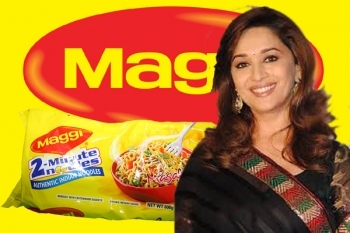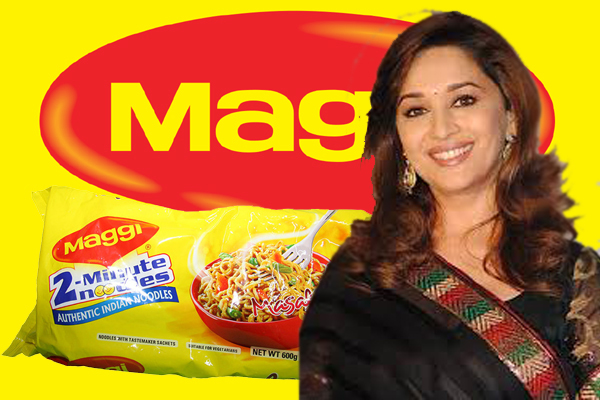
.png) Aarti
Aarti

Intended to curb misleading advertisements and protect the consumers who may be exploited or affected by such advertisements, the ‘Guidelines for Prevention of Misleading Advertisements and Endorsements for Misleading Advertisements, 2022’ enforced by the Central Government effective this June 9, is laudable. Implemented in the right earnest, it would protect consumers from being fooled with unsubstantiated/false claims, exaggerated promises and misinformation.
The moment we open up the pages of our newspaper or a magazine, more than the news, what catches our immediate attention are the advertisements for mobile phones, laptops, clothes, shoes, cars, educational courses to name a few. The list of products being advertised or endorsed by celebrities is rather mindboggling. Similarly, turning on the television, we can see smiling faces trying to sell us a plethora of goods. The ubiquitous digital advertisements begin to pop up, no sooner we open our laptops or mobiles.
Advertising, a method of promoting a product or service, has come a long way. An interesting anecdote worthy of mention is the manner in which, Claude Hopkins, an American Sales Executive, who in the early 1900s is said to have coined a new a set of rules on how to create new habits among consumers. Besides “seducing” hundreds of women into purchasing Palmolive soap by proclaiming that Cleopatra had washed with it, he also made Puffed Wheat famous by saying it was “shot from guns” until the grains puffed “to eight times normal size”. He is credited of turning many unknown products including Quaker Oats, Goodyear Tyres etc., into household names.
According to the Code of the Advertising Standards Council of India (ASCI), established in 1985 for the purposes of self-regulating the advertising industry, an advertisement is defined as a paid-for communication, addressed to the public or a section of it, the purpose of which is to promote, directly or indirectly, the sale or use of goods and services to whom it is addressed.
While the purpose of advertising is to reach people who are willing to pay to buy a product or service, what counts is the strategy to persuade them to choose the product/service. Advertisements cleverly try to lure people with the “uniqueness” of the product. If one detergent brand might state that it gets stains out better than competitors, another may proclaim it smells great with the promise it will leave clothes feeling fresh. Even before we make up our mind, there would be a number of well-known celebrities endorsing different brands that would make us confused as to which brand ought to be bought.
Now, whether the celebrity endorsing the product has actually tried the same before recommending it? Maybe and may not. It is unclear. Take for instance the famous tobacco advertising for Marlboro cigarettes in the United States. It was known many years later that the Marlboro Man (Robert Norris) who featured in the advertisements for nearly 14 years simply refused to smoke although he promoted the brand. When he died at the age of 90, Norris he left behind a mansion and some 15-acres of land valued at $8 million.
Consumers have a lot on their minds, beyond checking out for prices, hunting for special offers while planning a purchase. The most powerful effect of advertising is to create a good feeling about a product, which the celebrities do it so appealingly. Remember the manner in which the famous “2-minutes” Maggi noodles was endorsed by celebrities. There was a lot of public anger when the product got withdrawn from the market in 2015 following a ban by food safety regulator, Food Safety and Standards Authority of India after tests conducted on a batch of Maggi were found to contain more-than-permissible levels of lead which was 17 times more than the stipulated limit apart from high quantities of mono-sodium glutamate, which is considered hazardous. Nestle, the company which owned the Maggi brand had to recall Maggi noodles from the markets across the country and destroyed it. Reportedly, the hit on Nestle’s balance sheet that year was a whopping Rs 320 crore of stock of Maggi. While the regulatory authorities filed a Rs 640 Crore claim under the Consumer Protection Act against Nestle for false labelling and misleading advertising, film actors including Amitabh Bachhan, Madhuri Dixit and Preity Zinta were dragged to the court for promoting the Maggi noodles brand.
More recently, as the “Black Lives Matter” movement found traction following the brutal death of George Floyd in the United States, the Hindustan Unilever, which was selling “Fair and Lovely” facial cream for the past four decades occupying nearly 80 per cent of the market share in the category of creams promising the whitening of complexion, was forced to take note of the public angst. It swiftly rechristened its top selling cream to “Glow and Lovely”. Despite the name change, thanks to the celebrities endorsing the brand, it is said that its sales numbers have not come down. There are hardcore loyalists!
Now the main takeaways of the recent Guidelines are that conditions for non-misleading and valid advertisements as also for bait advertisements have been specified. While surrogate advertising has been prohibited, free claims advertisements have been clearly defined. Notably, there are a number of restrictions on advertisements targeted at children. Above all, due diligence is required for endorsement of advertisements. A penalty of up to Rs 10 Lakh can be imposed on manufacturers, advertisers and endorsers for any misleading advertisements which can go up to Rs 50 Lakh for subsequent contraventions. The endorser of a misleading advertisement can be prohibited from making any endorsement for up to 1 year and for subsequent contravention, such prohibition can extend up to 3 years.
In so far as children are concerned, an advertisement of any goods, product or service which addresses or targets children shall not – (a) be such as to develop negative body image in children; (b) give any impression that such goods, product or service is better than the natural or traditional food which children may be consuming. Importantly, an advertisement for junk foods, including chips, carbonated beverages and such other snacks and drinks during a programme meant for children or on a channel meant exclusively for children is prohibited. It also discourages any advertisement which offers promotional gifts to persuade children to buy goods, product or service without necessity or promotes illogical consumerism.
Also, due diligence is required for endorsement of advertisements. Any endorsement in an advertisement must reflect the genuine, reasonably current opinion of the individual, group or organisation making such representation and must be based on adequate information about, or experience with, the identified goods, product or service and must not otherwise be deceptive.
With the enforcement of the ‘Guidelines for Prevention of Misleading Advertisements and Endorsements for Misleading Advertisements, 2022’ it is hoped that advertisements in the country would be truthful and all descriptions, claims and comparisons which relate to matters of objectively ascertainable fact are capable of substantiation.
In India, Brand Ambassadors, said to charge between Re 1 Crore to Rs 30 Crore for brand endorsements, have an overwhelming influence on the public, and advertisers bank upon them for their success. So, there is an imperative need for celebrities to obtain all the requisite information before endorsing a brand so that consumers would be able to make informed decisions based on facts rather than false narratives and exaggerations. At an individual level, when anyone has a grievance against misleading advertisements, they can file a complaint on the GAMA (Grievances Against Misleading Advertisements) portal.